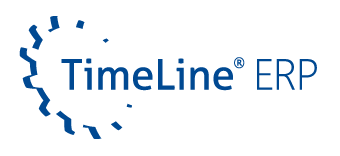ERP and CRM – an ideal match?
ERP and CRM systems are among the most widely used business solutions today. Their popularity is growing, and not just among large enterprises. Used correctly, they can help you and your employees simplify your daily work and make business processes more efficient. This is important because competition is becoming increasingly fierce. Not surprisingly, every company wants to look their best and be a step ahead of the competition. Once you win a new customer, you want to keep them and not lose them to the competition. If you know what your customers want, understand their needs and can respond to them individually, you have a good chance of winning the game and staying in the fast lane. But what does it take to win a customer over for the long haul?
What is a CRM system?
CRM stands for Customer Relationship Management. Essentially, CRM software provides a standardized and organized platform for managing your customers’ and prospects’ information. All the information you have about a customer is organized in one place. You can view and organize it at a glance. All interactions can be easily documented and analyzed.
The benefits at a glance
CRM software is often used when it is particularly important for a company to maintain and strengthen its relationship with its customers. All information related to a customer is displayed in a clear history.
Contact management
Every phone call, document, note, and other correspondence, as well as information about past conversations, negotiations, agreements, and long-term developments, is recorded in the software. For scheduled meetings, for example, you can create a calendar entry or view past and upcoming appointments. Orders, complaints or change requests are also stored in the software. All data is summarized in a structured user interface and can be tracked by the entire team. As a result, every employee can respond to customer inquiries competently and well-prepared, whether or not they are the actual contact person.
Enterprise collaboration across teams
With a CRM system, you can work in a more progressive, modern and effective way. Because data is stored in a central database, every employee, regardless of department, always has the most up-to-date information. When customers have problems or complaints, it is easier to deal with them because they do not have to go from department to department explaining their concerns over and over again. This is a very positive experience for the customer, which can trickle down to potential customers. Ultimately, this is how you build a good reputation, especially as a small business. The CRM system has a number of advantages, especially for internal collaboration within the company. For example, the software always knows what sales phase you are in.

Thanks to a clear sales pipeline, you can see at a glance which tasks require your immediate attention and which can be dealt with later. Reports on sales figures can also be used to improve sales strategy. For example, by analyzing all interactions with a customer, sales reps can determine the best time to contact the customer about a new product. It is also possible to develop targeted marketing strategies. For example, the customer base can be divided into different segments, such as by location or sales stage. You can then send individual messages to each segment. Project management also benefits, as structured and synchronized data allows project managers to better track processes. The CRM system also provides information on company performance. It provides real-time data, reports, graphical dashboards, and productivity metrics.
Customer satisfaction improvement
Regardless of your business or industry, whether you are a sole proprietor, a big or a small business, a CRM system will help you stay in touch with your customers, improve and positively influence your customer relationship, and build long-term customer loyalty. Customers expect more than a quality product or service. They want to feel understood. Knowing your customers’ needs will help you meet them better. Building good relationships and following up with prospects and customers is critical to winning and retaining customers. Customers who remain loyal to your company increase your revenue.
ERP and CRM system – what’s the difference?
The two systems are very similar in many ways. However, they do differ in important details, which is why they are not directly comparable. First and foremost, both systems are designed to make your day-to-day work easier. The big difference, however, is where they are used and in what areas of the business they are used. With the ERP (Enterprise Resource Planning) system, the focus is clearly on business processes and the workflow that takes place behind the scenes. It is all about structuring and streamlining workflows and efficiently handling operational processes in the background. CRM software, on the other hand, focuses on the customer and the relationship with the customer. Increasing customer satisfaction and retaining customers over the long term, as well as managing and maintaining the customer base, play a key role. The goal is to reduce operating costs and increase revenue over the long term.
ERP or CRM – which is the better choice?
To answer this question, you should first consider what is most important to you in your day-to-day operations and what your long-term goals are. An ERP system is often used in industrial companies that manufacture products and want to increase productivity and track, control, and improve internal processes. CRM systems are mainly used when customer relations and new customer acquisition are a priority for the company. You can also maintain customer information in an ERP system. ERP solutions often include CRM functionality, but lack advanced features such as analytics, reporting, or customizable cockpits.
If you are not sure which system is the best solution for you, ask yourself if you and your employees are satisfied with the functionality of most business solutions. If so, CRM software is probably good enough for you. If not, a more comprehensive ERP system may be a better choice for you. It is also possible to combine the two systems. Linking the ERP and CRM systems can bring you many benefits, and CRM software can be easily integrated with most modern ERP systems.
Benefits of linking ERP and CRM
Linking ERP and CRM software has many benefits. Perhaps the most important is a single database for the entire company. All relevant data is available to all employees in the most up-to-date form. This allows you to respond quickly to customer requests because all important data is readily available. This increases customer satisfaction. You have a clear customer base, an overview of all previous orders, current orders and delivery times, as well as insight into outstanding payments or reminders. With information about customer ordering habits and preferences, you can develop targeted marketing strategies. It is also possible to flag key customers in the system and give them preferential treatment, for example, in terms of service and order processing.
Are ERP and CRM software a good combination, then?
The ERP system and the CRM software can be linked via an interface. It is important that the two systems are well coordinated. If they are not, you are wasting valuable potential. Here is an example to illustrate this: Suppose one of your customers wants to change a previously placed order. The data from the conversation is recorded in the CRM system. Running them in parallel without integration would result in each system having a different level of information. Employees working with the ERP system would not have the changed order. As a result, data would have to be entered and reconciled multiple times. This creates a lot of extra work, and errors can easily creep in. In the worst case, this can lead to misunderstandings with the customer.
Conclusion
Unfortunately, there is no one-size-fits-all advice on which system is right, or whether a combination of the two makes sense for your organization. You have to decide for yourself which of the many options on the market is best for you and your employees. This requires patience and a sense of your company’s needs.
If you would like to learn more about linking ERP and CRM systems or about the full range of TimeLine ERP functions, please send us a message using the contact form, write to [email protected] or contact our sales team at +49 212 230 35 200. We will be happy to advise you!





